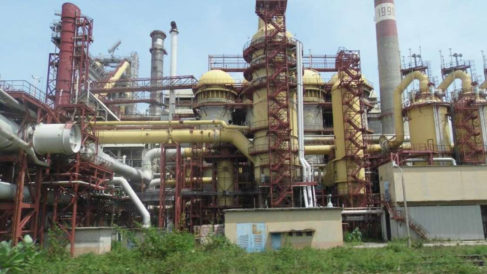The commitment of the federal government to the expeditious completion of the Ajaokuta Steel Company is being fervently reiterated, heralding a transformative era for the domestic manufacturing landscape, particularly in the production of automobiles and spare parts for local consumption. This resolute stance was eloquently conveyed by Joseph Osanipin, the Director-General of the National Automotive Design and Development Council (NADDC), during a noteworthy public sector engagement focused on the Implementation of the Nigerian Automotive Industry Development Plan (NAIDP 2023-2033) held in the capital city, Abuja.
Osanipin articulated the imperative need for a paradigm shift, emphasizing that the era of allowing the importation of a staggering 400,000 used cars annually into the country must come to an end. He decried the prevailing situation where Nigeria is increasingly becoming a dumping ground for such vehicles and underscored the collaborative efforts with stakeholders to impose a ban on the importation of used vehicles manufactured more than twenty years ago.
The visionary director-general, in his address, highlighted the multifaceted benefits anticipated from the completion of the Ajaokuta Steel Company. Not only is it poised to preserve the nation’s precious foreign exchange, but it is also envisioned to catalyze local manufacturing of spare parts for the burgeoning auto industry. Moreover, the ripple effect is anticipated to manifest in the form of substantial employment opportunities, providing a much-needed boost to the nation’s workforce.
Osanipin did not mince words when addressing the need for regulatory measures to curtail the influx of used cars that fall below acceptable standards. He advocated for collaboration with customs authorities to institute age limits on imported vehicles, expressing dissatisfaction with the importation of vehicles lacking essential safety features such as airbags. This, he asserted, is an unacceptable compromise on safety standards, ajaokuta steel.
The engagement served as a platform for Osanipin to elucidate the pivotal role of the NAIDP, designed to tackle critical challenges plaguing the automotive sector. These challenges include but are not limited to low production levels, insufficient local content, and limited financial support. In a bid to bolster local content, Osanipin revealed the forthcoming implementation of a “deletion policy,” an integral component of the NAIDP. This policy aims to identify components such as tires, plastics, batteries, and other vital elements that can be feasibly produced within Nigeria, ajaokuta steel.
Emphasizing the indispensable role of standards in production, Osanipin elucidated that adherence to stringent quality benchmarks would not only benefit local assemblers but would also open doors to global markets. The production of locally sourced components meeting international standards is envisioned to facilitate the gradual reduction of imports and contribute to the overarching goal of fostering economic growth.
Conclusion: Ajaokuta steel

Osanipin reiterated the imperative of developing robust local content to conserve foreign exchange and fortify the national currency. The envisioned trajectory involves a systematic approach to identifying components amenable to local production, fostering employment, attracting investments, and ultimately realizing the mandates outlined in the NAIDP. The director-general’s comprehensive discourse paints a vivid picture of a strategic and holistic vision poised to reshape Nigeria’s automotive industry and contribute significantly to the nation’s economic prosperity, ajaokuta steel.
Source: gaurdian.ng










